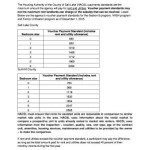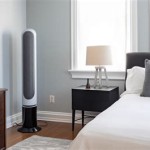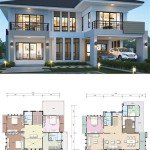Navigating the Chicago 1-Bedroom Apartment Landscape
Chicago, Illinois, a city renowned for its vibrant culture, architectural marvels, and diverse neighborhoods, presents a dynamic and competitive rental market. Finding a suitable 1-bedroom apartment in Chicago requires careful consideration of various factors including budget, location preferences, desired amenities, and the overall state of the real estate market.
The city's diverse neighborhoods each offer a distinctive character and appeal, directly influencing rental prices and lifestyle. From the bustling energy of downtown to the more relaxed atmosphere of residential areas further from the city center, prospective renters have a wide range of options to explore. Understanding the nuances of each neighborhood is critical in making an informed decision.
Furthermore, the availability of amenities, such as in-unit laundry, parking, fitness centers, and pet-friendly policies, can significantly impact the overall renting experience. Landlords and property management companies typically offer varying levels of amenities, reflecting different price points and target demographics. Thoroughly assessing personal needs and priorities is essential when evaluating apartment options.
The Chicago rental market experiences fluctuations influenced by seasonal trends, economic conditions, and overall housing supply. Keeping abreast of current market trends can give renters a competitive edge during their apartment search. Online resources, real estate agents, and market reports provide valuable insights into rental rates, vacancy rates, and emerging trends.
This article provides a comprehensive overview of key considerations when searching for a 1-bedroom apartment in Chicago, aiming to equip prospective renters with the knowledge necessary to navigate the city's rental market effectively. It will delve into factors influencing rental costs, explore popular neighborhoods, discuss essential lease terms, and provide practical tips for a successful apartment search.
Understanding Factors Influencing Rental Costs
Rental costs for 1-bedroom apartments in Chicago vary significantly based on a multitude of factors. Location is a primary determinant, with apartments located in downtown areas like River North and Streeterville typically commanding higher rents due to their proximity to business centers, entertainment venues, and cultural attractions. Conversely, neighborhoods located further from the city center, such as Albany Park or Rogers Park, generally offer more affordable options.
Apartment size and layout also play a crucial role. Larger 1-bedroom apartments with well-designed layouts tend to be more expensive. Features such as updated kitchens and bathrooms, hardwood floors, and ample natural light contribute to increased rental value. The presence of a balcony or outdoor space can also significantly influence the rental price.
The availability of amenities directly impacts rental costs. Buildings offering in-unit laundry, fitness centers, swimming pools, rooftop decks, and secure parking often command higher rents compared to buildings with fewer amenities. The level of building maintenance and management also contributes to rental value. Well-maintained buildings with responsive management tend to attract higher-paying tenants.
Seasonality influences rental rates, with demand typically peaking during the summer months due to an influx of students and individuals relocating to the city. Renters may find more competitive rates during the fall and winter months when demand is lower. Economic conditions, such as job growth and interest rates, also affect the overall rental market. Strong economic growth typically leads to increased demand and higher rental prices.
Another factor impacting rental costs is the age and condition of the building. Newly constructed or recently renovated buildings often feature modern amenities and updated finishes, justifying higher rental rates. Older buildings may offer more affordable options, but they may also require compromises in terms of amenities and maintenance.
Proximity to public transportation is a significant consideration for many renters in Chicago. Apartments located near CTA train lines or bus routes tend to be more desirable, leading to higher rental values. Convenient access to transportation reduces commuting time and expenses, making these apartments more attractive to renters.
Exploring Popular Chicago Neighborhoods for 1-Bedroom Apartments
Chicago boasts a diverse array of neighborhoods, each offering a unique blend of characteristics and attractions. Choosing the right neighborhood is crucial for a satisfying renting experience. Several factors should be considered when selecting a neighborhood, including lifestyle preferences, proximity to work or school, access to amenities, and overall safety.
River North, located just north of the Chicago River, is a vibrant and upscale neighborhood known for its art galleries, trendy restaurants, and lively nightlife. It is a popular choice for young professionals and those seeking a dynamic urban environment. 1-bedroom apartments in River North tend to be on the higher end of the price spectrum.
Streeterville, situated along the Magnificent Mile, is another upscale neighborhood characterized by high-rise buildings, luxury hotels, and upscale shopping. It offers stunning views of Lake Michigan and is within walking distance of many of the city's major attractions. Rent in Streeterville is generally comparable to River North.
Lincoln Park, located north of downtown, is a more residential neighborhood known for its beautiful parks, tree-lined streets, and family-friendly atmosphere. It boasts a mix of older brownstones and modern apartment buildings. 1-bedroom apartments in Lincoln Park tend to be slightly more affordable than those in River North or Streeterville.
Lakeview, further north of Lincoln Park, is a diverse and vibrant neighborhood with a strong sense of community. It offers a mix of housing options, including vintage apartments and modern condominiums. Lakeview is known for its lively nightlife, eclectic shops, and proximity to Wrigley Field, home of the Chicago Cubs. Rental rates in Lakeview are generally more affordable than those in Lincoln Park.
Wicker Park, located west of downtown, is a trendy and artistic neighborhood known for its independent boutiques, vintage stores, and live music venues. It attracts a diverse mix of residents, including artists, musicians, and young professionals. 1-bedroom apartments in Wicker Park offer a range of price points, with some of the more affordable options available further west in the neighborhood.
Logan Square, located northwest of downtown, is another up-and-coming neighborhood known for its historic architecture, vibrant arts scene, and diverse culinary offerings. It offers a mix of housing options, including vintage apartments and newly constructed developments. Rental rates in Logan Square are generally more affordable than those in Wicker Park.
These are just a few examples of the many diverse neighborhoods Chicago has to offer. Prospective renters should research different neighborhoods to determine which one best suits their individual needs and preferences. Visiting the neighborhoods in person and exploring their unique characteristics is highly recommended.
Understanding Lease Terms and Essential Considerations
Before signing a lease agreement, it is crucial to carefully review and understand all the terms and conditions outlined in the document. A lease agreement is a legally binding contract between the landlord and the tenant, outlining the rights and responsibilities of both parties. Understanding the lease terms can prevent potential disputes and ensure a smooth renting experience.
The lease term specifies the duration of the rental agreement, typically one year. It is important to note the start and end dates of the lease and understand the renewal process. Some leases automatically renew for another term unless either party provides written notice of non-renewal within a specified timeframe.
The rent amount specifies the monthly rental payment and the due date. The lease should also outline any late payment fees and the grace period, if any. It is important to understand whether utilities are included in the rent or if the tenant is responsible for paying them separately. Common utilities include electricity, gas, water, and trash removal.
The security deposit is a sum of money paid by the tenant to the landlord as security against potential damages to the property. The lease should specify the amount of the security deposit and the conditions under which it will be returned at the end of the lease term. Illinois law regulates the amount of the security deposit and the timeframe for its return.
The lease should outline the landlord's responsibilities for maintaining the property, including repairs and maintenance. It should also specify the tenant's responsibilities for maintaining the cleanliness of the apartment and reporting any necessary repairs. Understanding the process for requesting repairs is essential.
The lease should address the issue of subletting and assignment. Subletting refers to the tenant renting out the apartment to another party, while assignment refers to the tenant transferring the lease to another party. Many leases prohibit subletting or assignment without the landlord's written consent.
The lease should also outline the landlord's right of entry to the apartment. Landlords typically have the right to enter the apartment for repairs, maintenance, or inspections, but they are generally required to provide reasonable notice to the tenant, except in cases of emergency.
Pet policies are a crucial consideration for pet owners. The lease should specify whether pets are allowed, and if so, any restrictions on breed, size, or number of pets. Pet owners may be required to pay an additional pet deposit or monthly pet rent.
Understanding the termination clause is essential. The lease should outline the process for terminating the lease early, including any penalties or fees that may apply. Breaking a lease can have significant financial consequences.
Before signing a lease, it is advisable to read it carefully, ask questions about any unclear terms, and if necessary, consult with an attorney. Understanding the lease terms and conditions can help ensure a positive and stress-free renting experience.
Beyond lease terms, renters should also consider renter's insurance. Renter's insurance protects personal belongings from damage or theft. It typically covers damage from fire, water, wind, and vandalism. It also provides liability coverage in case someone is injured in the apartment.
Checking the building's management reputation is also important. Online reviews and testimonials can provide insights into the responsiveness and professionalism of the property management company. A well-managed building can significantly enhance the renting experience.
Finally, thoroughly inspecting the apartment before signing the lease is crucial. Documenting any existing damage, such as scratches on the walls or cracks in the ceiling, can prevent disputes later on when the security deposit is returned.

Presidential Towers Apartments In Chicago Il Rentcafe

1 Bedroom Apartments For Rent In Chicago Il Updated Daily
2560.png?strip=all)
1 Bedroom Apartments For Rent In Chicago Il Updated Daily

1 Bedroom Apartments In Chicago Il
1 Bedroom Apartments In Chicago Il For Rent 7441 One Com

1 Bedroom Apartments For Rent In River North Chicago Il 191 Rentals Redfin
1 Bedroom Apartments In Chicago Il For Rent 7441 One Com

1 Bedroom Apartments For Rent In 60611 Homes Com

1 Bedroom Apartments For Rent In West Side Chicago Il 402 Rentals Redfin

1 Bedroom Apartments For Rent In North Chicago Il Realtor Com
See Also








